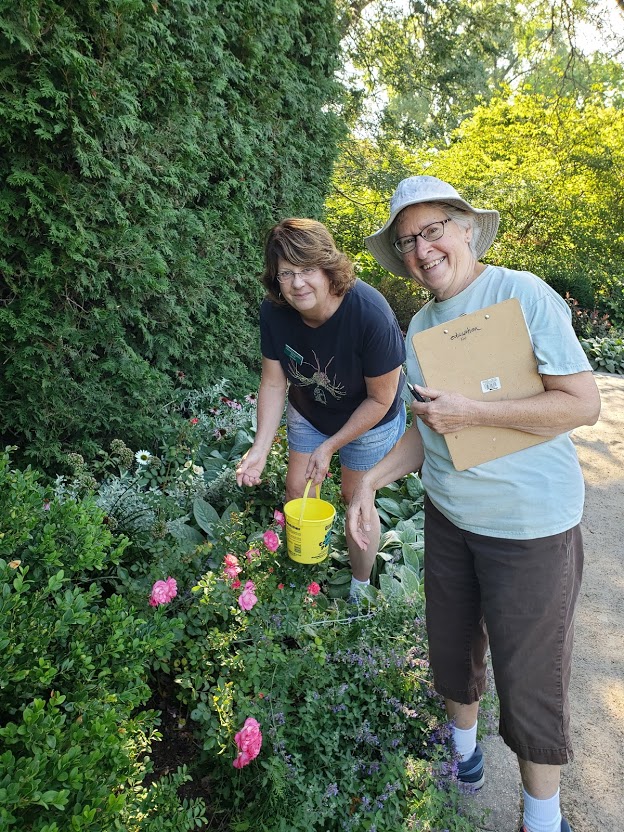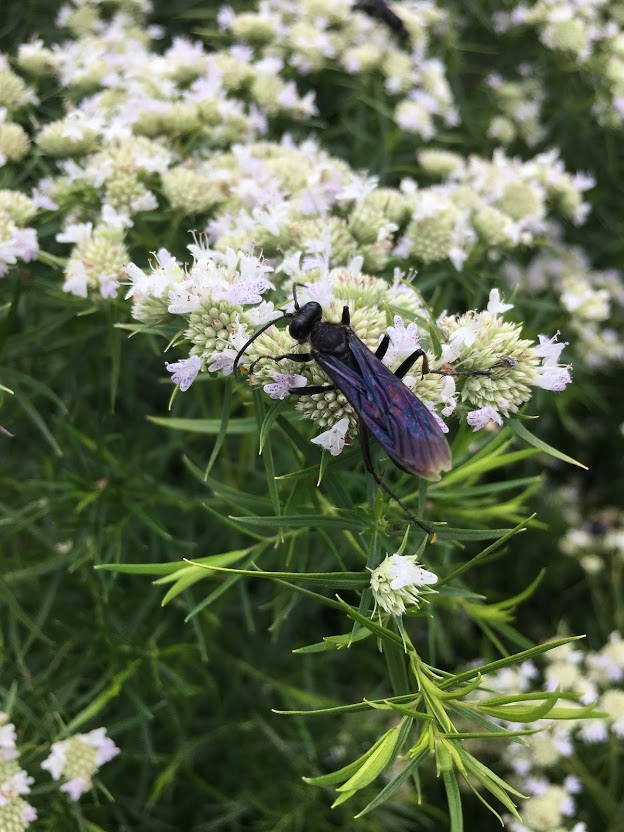Guest blog by Katey Pratt. An earlier version of this story was published in Olbrich Garden News (2019).
The community of Madison, Wisconsin, takes pride in its parks, conservation areas, botanical garden, bike trails, and open space. In response to the pollinator crisis, staff in various city agencies have planted more native plants and have become engaged in Bee City USA and also Monarch Watch. Madison became a Bee City USA affiliate in 2017 after staff from the Mayor’s office initiated an application. Initially, the Bee City USA committee was an offshoot of the Food Policy Council (part of the Mayor’s office), but in 2020, coordination of the Bee City program has moved to City of Madison Engineering, which manages greenways throughout the City.
One of the major projects that actively supports the Madison Bee City USA affiliation has been Olbrich Botanical Garden. The 16-acre botanical garden is owned by the City of Madison and is operated by a partnership between the city’s Parks Division and the not-for-profit Olbrich Botanical Society. OBG plays a role in the Bee City USA efforts by practicing and demonstrating sustainable horticulture and by providing educational programming for people of all ages.
The botanical garden was already a local leader in some aspects of pollinator conservation, having practiced integrated pest management (IPM) techniques for more than 30 years. Cultural, biological, and physical techniques are always preferred before resorting to pesticides. In 2019, three horticulturists on staff began to investigate the presence of beneficial insects in the garden.
In order to learn more about beneficial insects and pest insects at OBG, more eyes were needed. The Garden Scouts Volunteer Team was formed by horticulturists Katey Pratt and Samara Eisner. Their goals included:
- Identify existing insects,
- Monitor insect populations,
- Plan trial releases of beneficial insects,
- Track insect damage,
- Research perennials that attract beneficial insects, and
- Create a new learning opportunity for all staff & volunteers
Each week from mid-April until the end of October, the volunteers observe “hot spot” areas to monitor beneficial insects, gather data, track insect damage, and remove Japanese beetles and other pests. These volunteers work independently, and over the year can dedicate more than 150 hours to the task. Monthly team meetings (lapsed due to the pandemic) featured “show & tell” of interesting insects, a recap of findings, special trainings and presentations, hands-on demonstrations, and of course, homework assignments. The main homework is to research plants that attract and support various types of beneficial insects.

Volunteers monitor beneficial and pest insects at Olbrich Botanical Gardens. 
A great black wasp visits the garden.
Our Garden Scouts have found many not-so-great insects that created cosmetic damage, but also many beneficial insects and pollinators! The most fascinating finds were candy-striped leafhoppers, painted lady & skipper butterflies, goldenrod soldier beetles, and great black wasp, as well as three different instars of black swallowtail caterpillars!
The University of Wisconsin – Madison Insect Diagnostic Lab has been very helpful in identifying insect species. Knowing the exact species found allows us to use more accurate treatment and control options.
Garden Scouts have also inspired donations to purchase materials such as microscopes, identification guides, and more. A grant received in 2020 from the Dane County Environmental Council provided expansion of the program.
Madison’s Bee City USA affiliation shows staff, volunteers, and garden visitors that our work to help and support pollinators in our community is valued by City leadership. The affiliation celebrates and validates the many pollinator-focused projects that staff carry out at Olbrich Botanical Gardens, as well as all the City of Madison agencies engaged in the work including Monona Terrace Community and Convention Center, Madison Parks, Madison Engineering Greenway Management, and more. It’s a great opportunity to showcase our work and become part of the larger nationwide effort.





